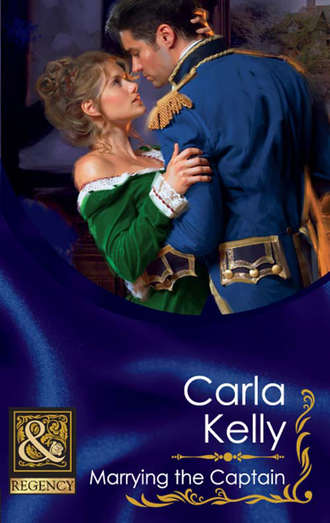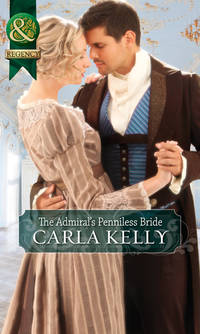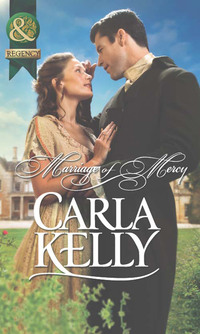
Полная версия
Marrying the Captain
Andrew, a fisherman himself, to speed the repairs on the Tireless.
“But not too fast, Gracious Lord,” she amended. “Captain Worthy has a putrid throat and clogged ears and he hasn’t had Gran’s cod and leeks yet.”
She opened her eyes to make sure no one was close by. “Besides that, Lord, I like his company.”
Chapter Four
Oliver knew he was not the most subtle of men—what captain was?—but he had to discover a diplomatic way to find out more about Nana Massie. It was becoming increasingly obvious to him that Lord Ratliffe knew nothing about his daughter.
His first order of business was the Tireless, which occupied him the moment he stepped onto the dry docks on the River Tamar and met the master shipwright. Indeed, he would have been hard to overlook. Oliver had never dealt with Roger Childers before, but he had heard stories, mainly about the bald spots here and there on his head. The rumor was that he pulled his hair out in little clumps, with each demand by impatient captains.
Before Childers could begin, Oliver handed him his copy of the survey, with the few items Nana had added. The shipwright read down the list, then began to worry a small patch of hair by his left ear. Oliver could hardly keep from bursting into laughter. He knew he didn’t dare look at his mates, who had heard the same rumors.
With a deep sigh, Childers jabbed at the survey with a finger fringed about with wispy hair. “She’ll not be ready before two months, and then we’re stretching it, Captain.”
“It must be three weeks.”
Back went Childers’s fingers to his hair. This war had better end soon, Oliver thought, or this man will have snatched himself bald. He turned away briefly to stare into the middle distance and force down a laugh.
During the tirade that followed, Oliver resolutely set his face toward the Tireless, and his crew that lined the ship’s waist. From bosun to the small gunners’ helpers, they watched the whole exchange with interest. There appeared to be money changing hands by the few who had any coins left. Oliver wondered if the wager was how many more bald spots, or the length of time for repairs.
“Six weeks, and not a minute less, Captain,” Childers pronounced finally.
“One month.”
The same routine followed, but it appeared to Oliver that the shipwright was weakening.
Finally they agreed upon three and a half weeks. Oliver found himself of two minds about the matter. Three weeks would have been better, but that extra few days meant more time admiring Nana Massie. He wasn’t even thinking of her as Miss Massie anymore, although he knew he daren’t call her by her nickname.
I have so little time, he protested silently. Almost none, and then I am back at sea. But there was Childers at his elbow, looking like a broken man, and holding out the revised survey for his signature. He signed.
“You’re a hard man, Captain Worthy.”
“This is a hard war, Mr. Childers.”
He turned his attention to the dry docks. There was a schooner in one way, and his own frigate next to it. The other four dry docks were empty. He looked to the ways in the distance, and only one showed a ship in progress. “It appears you can use the work.”
“We can indeed,” the shipwright said, the light back in his eyes, and his voice friendly again. If anything, he looked peppier than before his hair-pulling session. He frowned then. “I know Admiral Lord Gardner has his reasons for keeping the Channel Fleet at its station, but—” he gestured toward the frigate’s stern “—you can only defer maintenance so long. When the water’s up to your ass, it’s a bit late, wouldn’t you say?”
It was typical navy graveyard humor. “A bit,” he agreed. He held out his hand to the shipwright, who shook it. They parted friends.
Oliver handed his roster to Mr. Proudy. “We’ll follow our usual pattern. Number ones go first for five days, and so on in rotation. Remind the crew that if all the number ones don’t return, there will be no two, three or four. You might also remind them that their share of the prize money from our last cruise is at Brustein and Carter’s, matched against my roster and their identification.”
“Aye, aye, sir,” Proudy said, as he took the roster. He turned toward the Tireless and held it up, to cheers from all on deck.
Oliver turned to Mr. Ramseur. “Is my purser still on board?”
“Aye, sir.”
Oliver took some coins from his waistcoat pocket and handed them to his second mate. “Give him my compliments, Mr. Ramseur, and ask him to have a quarter beef and a package of good lamb chops—maybe a dozen—delivered to the Mulberry. He knows the victuallers better than I do.”
“Aye, sir.”
“And, Mr. Ramseur…”
“Sir?”
“How about you and I watch the shipwright’s progress for the first two weeks and allow Mr. Proudy to escort his lady home to Exeter for some peace and quiet?”
Ramseur blushed, as Oliver knew he would. He grinned then and nodded. “Aye, sir. Shall I tell him?”
“Do. And tell him once he finishes the crew’s assignments, he can leave for Exeter.”
Oliver looked at Ramseur, really looked at him, and saw him for what he was: young, loyal, relatively untried. “Mr. Ramseur, I don’t think anything will happen in dry docks that you and I cannot handle.”
“Really, sir?”
For a moment, his number two sounded like a schoolboy. Was I ever that young? Oliver asked himself. Of course I was.
“Absolutely.” No point in stopping there. “Mr. Ramseur, I never fully thanked you for the clearheaded way you acted when the Wellspring rammed our stern. I’m glad you were on watch then, and not one of the midshipmen, or it might have been a different story.”
Oliver touched his forefinger to his hat and turned away to answer another question from Childers. When he turned back, Ramseur, his back straight and his step dignified, was crossing the plank to the Tireless, the picture of confidence.
I need to remember to do that more often, Oliver thought, as he watched his number two. Sometimes a kind word is more valuable than prize money. He thought of Nana Massie then, wondering if women could be treated the same way. He concluded they could.
With a look of gratitude worth more than speech, Mr. Proudy left the Tireless a few minutes later, saluted his captain and promised to return in two weeks.
“See that you do, Mr. Proudy,” Oliver said. “That’ll give Mr. Ramseur a week home in Lyme Regis. Didn’t he say something about a vicar’s daughter?”
“She’s the daughter of a solicitor, sir,” Mr. Proudy answered. “Dorie, I believe. Thank you again, sir.”
Oliver watched him go. Dorie, eh? he thought. Why on earth did I let all the Dories of the world pass me by? Ordinarily, he wouldn’t have given his mates’ personal lives a second thought. He blamed his new frame of reference on Lord Ratliffe’s miniature, and that curious axis shift at Admiralty House.
He nooned with Childers over a bowl of soup, then realized he had to return to his bed at the Mulberry. “I’ll be back tomorrow,” he told the shipwright. “If you have any questions, ask Mr. Ramseur.”
Even though his ears throbbed and his throat felt as though it was trapped in a vise, Oliver directed the hackney to Drake’s Inn first. All I want is information, he excused himself. I’ve known Mrs. Fillion for enough years to appreciate how much she likes to gossip. I will have to question her carefully, though.
He told the hackney driver to wait for him. He found Mrs. Fillion in the kitchen, staring glumly at her account book. She brightened when she saw him.
“Is the Mulberry not to your liking?” she asked. “They do need the trade.”
“So do you, madam,” he replied, sitting down. “Tough times ahead.”
She turned worried eyes on him. “We’ll fare all right, sir. Are you comfortable enough at the Mulberry?”
“I am,” he replied. “The Massies are seeing to my needs.” He leaned closer, pleased to see Mrs. Fillion do the same. “Pete Carter has fixed me a wicked brew for my throat, and Miss Massie seemed determined to keep the fire stoked to healing levels.” He shook his head. “It’s Gran that fair terrifies me.”
Mrs. Fillion laughed. “She’s an ogre, is Nancy Massie.” She leaned closer again. “If it weren’t for her, I can’t imagine what would have happened to Nana.”
Oliver didn’t have to say anything. He just raised his eyebrows.
“Nancy’s daughter, Rachel, was a flighty piece. She caught the fancy of a lieutenant. What happened to Rachel has happened to women in port the world over.” She looked at him knowingly.
“Ah, yes” was all he needed to say to restart Mrs. Fillion.
The innkeep lowered her voice. “Rachel had the bad fortune to die in childbirth. I don’t know how Nancy did it, but she held that lieutenant to some level of accountability.”
“That’s rare.”
“It is.” Mrs. Fillion shrugged. “I wouldn’t care to stand in front of Nancy Massie when she has an ax to grind. Somehow, a deal was struck. The baby’s father would see to her education, and then provide her with a meaningful opportunity.”
“Which didn’t happen, obviously, because she’s back in Plymouth.”
Mrs. Fillion nodded. “Five years ago, Nana came home on the mail coach from Bath. No one has said why.”
And you can’t worm it out of Gran, Oliver thought. This must be a tight secret indeed. And you don’t appear to know who that lieutenant was. He couldn’t deny his own disappointment at Mrs. Fillion’s news, which enlightened him no more than Lord Ratliffe had. He still didn’t know why Nana had bolted for Plymouth.
“At least Miss Massie has her grandmama,” he said, leaning back so he felt less like a co-conspirator.
“Gran’s a fierce protector,” the innkeep said. “So’s that old Pete.”
“A regular Scylla and Charybdis,” Oliver murmured.
“Are they Frogs?” Mrs. Fillion asked.
“Even worse. Greeks.”
“So Nana has returned to Plymouth. Lord knows if she will ever leave it.”
“No dowry, I gather?”
“Heavens, no!” Mrs. Fillion sighed, then gave him a knowing look. “A pretty face can get a woman a career in Plymouth, eh, Captain? But not Nana—a rich man’s by-blow, and not quite a lady.”
“She’s very much a lady,” Oliver said firmly. He couldn’t overlook the calculating look that suddenly came into Mrs. Fillion’s eyes, and hastened to neutralize it. “But it’s a pity, I agree. What can she hope for?”
“Not much. And what a pity! Such a pretty child. She always came with her gran to the market. I can still see her hurrying to keep up. Even the fishmongers gave her little treats, and you know what a rough lot they are!”
He could imagine Nana Massie captivating her Plymouth audience. For the tiniest moment, he wondered how nice it would be to take a little daughter or son on board the Tireless and introduce them to his watery world. He could hold a small son up to the wheel and let him think he was helmsman.
His mind was wandering; it was time to leave the Drake and go to bed. “Times are tough,” he repeated. He stood up. “Gran still calls her Nana?”
“We all do. When she was a baby, she couldn’t say ‘Eleanor.’ I suppose she was Eleanor at that la-di-dah school in Bath, but what good did that do?”
What good, indeed. He returned to the waiting hackney.
As they traveled up South Hoe, he noticed the wigmaker’s shop on the corner of Lambhay. Surely a town the size of Plymouth only had one such business, especially now that men were inclined to exhibit their own hair, and not rely on someone else’s.
He told the driver to wait, and went inside. A bell announced his presence and a bald man came out from the back room. Oliver had to suppress a smile when the man’s eyes went right to his hair, studied it, then glanced away, disappointed.
“I’m not a customer,” Oliver said.
Here was the dilemma. He wasn’t a man to lie, but he was curious about something. “My… my father is sensitive about hair loss, and I thought I would inquire into wigs.”
The proprietor launched into a rhapsodic description of all he could do. Oliver felt uncomfortable for his lie, but he had ventured this far, so he might as well continue.
He listened and asked a few questions about the wigmaking process itself. “And where does the hair come from? Do you… do you have any hair here I could look at?”
He did. The man reached under the counter and brought out two long hanks of hair—one blond and the other Nana’s. He had to resist the urge to run his hand down the length of it, auburn hair more brown than red, but with deep copper tones. It nearly took his breath away. Or maybe that was his putrid throat; hard to say.
“Go ahead,” the wigmaker urged. “Touch it.”
Oliver ran his hand over the hair, then combed his fingers through it, unable to resist. He suddenly wondered what it would look like, spread upon a pillow, still attached to its former owner. He had to remind himself his damned occupation had rendered him immune to females.
“That’s beautiful,” he said at last, reluctantly removing his hands from the dark mass. “What do you pay for hair like that?”
The wigmaker ran his own fingers through the slightly curling locks. “Usually I give eight to ten shillings for hair this length.” His eyes looked troubled then.
“And?” Oliver prompt ed.
“I paid a pound.” The wigmaker shook his head. “I tried to talk her out of cutting it. Imagine that. She told me to go ahead, they needed the money.” He returned the hair to his drawer. “She cried when I finished.”
“I can imagine,” Oliver murmured. He had to leave, not so much because of his throat this time, but because he couldn’t stand the sadness. “Let me ask my father what he thinks about a wig. Good day, sir.”
The thing is, she seemed so proud to be able to help her Gran, Oliver thought as the hackney delivered him to the Mulberry. He paid the jehu and walked up the path, pausing to note that the pansies had been resuscitated and given clean earth. He stood there a moment, looking down. Maybe everyone got a second chance at the Mulberry.
Nana met him in the hallway. “I thought I heard a hackney, Captain.”
He wanted to tell her his name was Oliver, but he didn’t. “Ah, yes, returning from the docks. Looks like you’re stuck with me for three and a half weeks, until my ship heals,” he joked.
He must have been more ill than he thought, because her eyes filled with tears. Should he ignore it, or comment? “It’s a tough ship,” he said.
Bless her heart. She dabbed at her eyes, and looked him square in his. “I was thinking you need more time, Captain,” she said, with only the slightest quaver in her voice. “If you don’t take care of yourself, who will?”
It was a good question, but not one of great concern to either Admiralty House or anyone except captains junior to him who would rise higher on the rolls, if he should suddenly slough off his mortal coil.
“I’ll be fit by then, too. Probably even sooner, Miss Massie.”
She seemed to have recovered herself. “Yes, certainly,” she agreed. She traded concern for belligerence, and he wasn’t sure which emotion touched him more. “See here, Captain, you forgot to drink another of Pete’s draughts before you left this morning. I intend to see that you do.”
“You and who else?” he asked, amused.
“Just me, I suppose,” she said in confusion, then looked at him more closely. “You’re quizzing me.”
“And stalling, too. That’s a rough brew.” He looked toward the stairs. “But right now I admit to being weary beyond belief. Please excuse me, Miss Massie. I think I want to lie down and die.”
“You aren’t allowed to die at the Mulberry,” she said, teasing him back.
He crawled into bed and slept the afternoon away, after drinking down another remedy, administered by Pete Carter himself. He found himself dreaming of Nana, which only left him embarrassed, and thinking he had left behind such dreams in his midshipman days.
He was aware later of someone adding more coal to the fire, and then tucking a hot brick, wrapped in a towel, at his feet. When he started to sweat, someone applied a cool cloth to his face. Another wheat poultice went around his neck and crossed over his throat, which made him dream of bread this time. He could have sworn then that Nana Massie rested her hand on his forehead, because it was cool and soft and he thought there was a hint of roses. He didn’t think Pete had much to do with roses.
When he woke finally, the room was dark, except for a glow from the fireplace. It was too much to hope that Nana would be in his room, but she was. She sat in the chair by his bed, and she appeared to be asleep. He needed to use the chamber pot, but not badly enough to disturb her slumber. He wanted to watch her.
She had leaned her head back and to one side against the high back of the straight chair, sitting somewhat in profile. The light was low, but he was impressed by the length of her eyelashes. She had even propped up her stockinged feet at the foot of his bed.
He slowly moved his right foot until it rested close to hers. He knew better than to touch her foot, but he felt her warmth, and that was enough to send him back to sleep.
When he woke later, he could have cried to see Nana gone and Pete there instead, holding a urinal in his lap. Oliver sighed. I go from the sublime to the embarrassing, he thought, wondering if Nana had vacated the room when he began to move around restlessly and finger his member, like a little boy with the urge to piss.
“I think you’re needing this,” Pete said, his voice gruff, but not unkind.
“My blushes,” Oliver said. “I hope I didn’t embarrass Miss Massie.”
Pete put the urinal under the covers. “She’s tended me when I’ve been too ill to get out of bed. Gran cut up stiff, but Nana’s not a shrinking violet. If I hadn’t been available just now, she’d have done for you, too.”
Horrors, he thought, horrors. “I could get up and use the chamber pot,” he protested, but only feebly.
“And have you tumbling arse over teakettle because you’re too sick?” Pete scolded. “I’m not in your navy now, sir, so I can speak plainly.”
“Indeed you can,” Oliver agreed, chastened. “And you’re right.” He finished and handed back the urinal. I can be matter-of-fact if you can, he thought. I just hope I don’t have to see Nana Massie again for the next three and a half weeks.
She was at the door and knocking, only moments after Pete left. She had a tray in her hands, and it occurred to him that he was more hungry than embarrassed. So much for the delicacies.
She came close to the bed and set the tray at the foot, then picked up the extra pillow from the side table by the window. He sat up so she could place it behind his head, and then adjust the table over his lap.
“It’s cod and leeks, cooked in cream. Mr. Proudy said you liked it, and Gran said it will go down easy.”
He was almost afraid to look at her, but he had to. He knew he would always have to. There was nothing missish about her expression. Well, if she doesn’t mind I am human, I suppose I shouldn’t, either, he decided, as he picked up a spoon.
It was delicious, and flowed easily around the boulder in his throat. “My compliments to the chef,” he told her, pleased to see her smile.
“Gran made it, but I watched. I think I can do it now.”
She sat down, then got up again to tuck a napkin in the front of his nightshirt. She pulled the tray a little closer, then picked up another bowl and spoon. He hadn’t realized she was planning to eat with him.
“This is so you’ll know I’m eating, too,” she said. “So are Gran and Pete and Sal. We made plenty for us all.”
So the inmates of the Mulberry had come to an understanding. Good. “Who is Sal?” he asked between mouthfuls.
“Our scullery maid.” She looked at him, and seemed to know what he was thinking. “We couldn’t let her go when times got tough, Captain. She said she’d rather take her chances with us than return to the workhouse.”
“Wise choice.”
He knew she would leave when he finished, so he ate slowly, savoring the company as much as the cod. She cleaned her bowl, which had been as full as his. He decided he liked a woman with a good appetite.
When he finished, she took the tray from his lap, but stood there, indecisive. He could tell she had something more to say, and allowed her time to work up to it. Her sentence came out in a rush.
“You absolutely cannot go to the dry docks tomorrow, Captain. I forbid it.”
He would have laughed, except that the serious look on her face touched him as nothing else could have. He noted how tight together her lips were, and how she gripped the tray, as if ready to spring into all kinds of defiance, if he argued.
“I won’t then,” he assured her. “You’re right. I’ll never get better if I don’t stay in bed.”
“You’re worrying me, Captain,” she said, her voice no louder than a whisper. “I… we want you to get well.”
“I promise I will. Cross my heart.”
She relaxed then. “Sir, if you need anything in the night… anything. Pete and I will take turns sleeping on a cot by your door.”
He started to protest at that, and the look he got in return was nearly mutinous. He nodded instead.
“Good night, sir,” she said, and left the room.
He woke up once in the night, stirring about enough to wake Pete, who came in with the urinal, and another dose of his patented draught, good enough to raise the dead and cure the world.
Toward morning, he woke again. His throat felt moderately better; the boulder in his throat had shrunk to a rock. He thought he could even manage the chamber pot this time. He got up quietly and used it, pleased with himself. Before he got back in bed, he went to the door and opened it, just to see who was on duty in the corridor.
Nana slept on the cot this time, balled up tightly enough to tell him that she was cold. He went to the clothespress in his room and pulled out a blanket, returning to the hall and covering her with it. She stirred, but did not open her eyes. He watched her, and in a few moments, she straightened out her legs and returned to a deeper sleep. Impulsively, he touched her head. He could have watched her the rest of his life.
Chapter Five
Her years in Bath notwithstanding, Nana was a true daughter of Plymouth. Since she was a small girl, she had known almost by instinct to hold officers in awe.
One of her earliest Plymouth memories—she must have been all of four—centered on a post captain staying at the Mulberry, when post captains used to do that. He had been talking in the hall with Gran, who held her hand. From her viewpoint much closer to the floor, Nana had looked up and up, and burst into tears before getting much beyond the gilt buttons. It was all too much.
Her first glimpse of Captain Oliver Worthy—tall beyond tall from his high fore and aft hat, and majestic down past his boat cloak to his buckled shoes—had given her no reason to change her mind. There was an aura well-nigh impenetrable about the navy. These were hard men in a hard service, deserving of her respect.
Maybe it was the matter of the pansies. It could have been when she put the wheat poultice around his neck that first night. Possibly even—blushes—when she knew he needed some help with a urinal. At some point in only a very few days, she fell in love.
She didn’t know what to call it at first. She had fancied herself in love when the brother of a fellow student at Miss Pym’s had sent her a ridiculous poem about eyes that eventually rhymed “brown” with “crown,” then took a tortuous leap to “drown.” The infatuation had passed with his bad spelling, but not before she had allowed him to kiss her on the cheek during a supposed visit to his sister.








